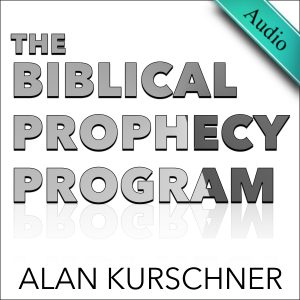Podcast: Play in new window | Download | Embed
 “Listen, I will tell you a mystery: We will not all sleep, but we will all be changed– in a moment, in the blinking of an eye, at the last trumpet. For the trumpet will sound, and the dead will be raised imperishable, and we will be changed.”
“Listen, I will tell you a mystery: We will not all sleep, but we will all be changed– in a moment, in the blinking of an eye, at the last trumpet. For the trumpet will sound, and the dead will be raised imperishable, and we will be changed.”
I explained several reasons why many interpreters think this refers to the rapture. In addition, I responded to this as a common pretrib proof text for imminence. It is argued that “the blinking of an eye” refers to imminence. But this make no sense if one stops to think about it. It is confusing two different categories. The category of timing says “imminence” is about what will not happen before the return of Jesus, while the category of the “blinking of an eye” is refers to what will happen at the return of Jesus.
So what exactly is the expression of “blinking of an eye” mean? It may come to a surprise for many that not only does this passage have nothing to do with imminence, it is not even a “rapture passage.” If one reads this passage in context, the previous verse says: “Listen, I will tell you a mystery: We will not all sleep, but we will all be changed” (1 Cor 15:51). The mystery is that the last generation of God’s people who are alive when Jesus returns will not have to experience death. They “will not all sleep” but will be changed. Their living bodies will instantaneously—“in a moment, in the blinking of an eye”—will take on imperishable bodies.
There is nothing in this context that indicates a “catching up.” That is not Paul’s concern in this passage. The question of the relationship between the rapture and the resurrection (they are not the same event) is treated by Paul in his first epistle to the Thessalonians. Paul most likely teaches that the resurrection of dead believers and translation of living believers will occur on earth just before both groups are raptured to the sky to meet Jesus. In other words, believers will not receive their new bodies as they are being caught up to meet Jesus. They will already have their new resurrected bodies just before the rapture—as Jesus had his new body before his Ascension. I have argued elsewhere on this point for further reading.
Coming back to our main point, Paul is not concerned about addressing the topic of what may or may not occur before Jesus’ return (he addresses this issue in 2 Thessalonians). So to impose the teaching of imminence into Paul’s mouth is to say the least not handling the Word of God properly. Paul is simply revealing the mystery that the last generation of the church will not have to die before Jesus returns. Satan will not achieve his aim in destroying the entire church through his persecution program! God in his power and mercy will preserve a remnant of his people that will survive up to the second coming (parousia) of Jesus. “But each in his own order [for resurrection]: Christ, the firstfruits; then when Christ comes [parousia], those who belong to him” (1 Cor 15:23).


